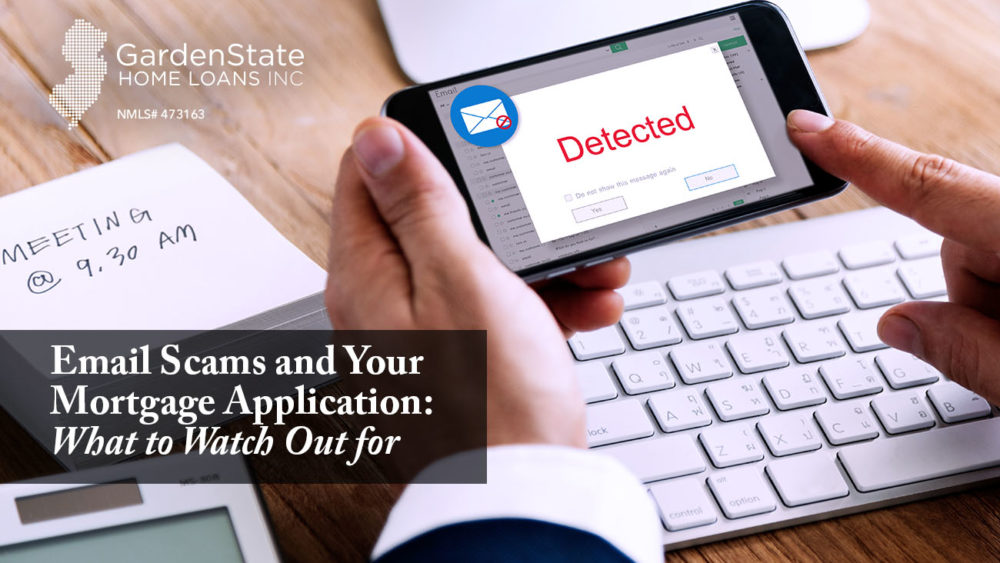
Buying a home can be an exciting and incredibly rewarding time, but it can also put you at risk. Making such a large financial decision can make you a target for scams and other fraudulent activity, having the potential to jeopardize your plans for homeownership. Recently, the Federal Trade Commission (FTC) and other federal agencies have issued a warning to prospective homeowners and mortgage borrowers about a recent uptick in email phishing scams targeting customers that are preparing to close on a home. Posing as your agent or lender, these scams falsely alert you that there have been last minute changes to your mortgage application, and that you need to wire money to an account (as specified by the email) to accommodate these changes. Phishing is a general category of scam where emails pretend to be sent from businesses, professionals, and otherwise trusted persons and organizations in order to get information. This can be a particularly pernicious cyber crime, but it’s also very avoidable. Here’s a few tips for you if you’re worried that you may fall prey to such a scam:
How to Avoid the Closing Cost Phishing Scam
1. Keep Clear and Open Lines of Communication With Your Agent(s)
It is important to maintain clear communication and transparency with your lender, real estate agent, and other professionals throughout the entirety of the mortgage process. This will avoid a lot of problems along the way, especially problems that may arise in the area of cybersecurity. This way, if you do receive a suspicious email, you will already have either the scrutiny to identify the email as fraudulent or the comfort to contact your lender, agent, etc. in an effort to confirm or deny the email. Without this clear communication, you may end up making an uninformed and potentially dangerous decision.
2. Be Careful When Handling Emails
Overall, it is imperative to exercise caution and skepticism when handling your emails. Do not open an email that seems suspicious based on its subject line or sender. Be on the lookout for misspelled words or improperly formatted titles and names. Additionally, if you’ve contacted your lender, agent, etc. via email before, compare those emails to any suspicious emails you may receive. By doing this, you can spot any discrepancies between emails and guard yourself against a potential scam. It is also important to avoid sending sensitive information over email, regardless of whom you’re sending it to. Any sensitive transactions can be handled in person or, if necessary, over the phone.
3. Contact Your Bank Before and After Sending Any Money
If your lender, real estate agent, etc. does ask you to transfer them money via a wire transfer or online platform, be sure to contact your bank before sending the money and check in with your bank throughout the entire transfer process. This will not only keep you informed about such a sensitive procedure, but also expand your transparency and lines of communication, a useful tool for future financial decisions of yours.
4. Call to Confirm
After checking in with your bank, both at the beginning and at the end of a transfer of funds, talk to one of the professionals helping you purchase a home and confirm their receipt of your payment. If they received everything that you sent them, then congratulations! You’re well on your way to finalizing your home purchase. If not, check back in with your bank before assuming that you’ve been scammed. If your bank reports suspicious activity on their end, then you may have to take extra steps to address the issue.
What if you Fall Victim to This Scam?
Phishing scams of this nature fall under the jurisdiction of federal law enforcement, and can be addressed by a variety of government agencies. The Federal Trade Commission (FTC) and Federal Bureau of Investigation (FBI) are the primary resources for you to file a complaint with if you suspect that you may have fallen victim to this particular phishing scam. It is recommended that you either file a complaint online (here for FTC, here for FBI) or contact your local FBI office, which you can find the location of here. Additionally, in the event that you fall prey to this scam, contact your state Attorney General and the Financial Crimes Enforcement Network (FinCEN) of the Department of the Treasury for further support in resolving this issue.


Comments are closed.